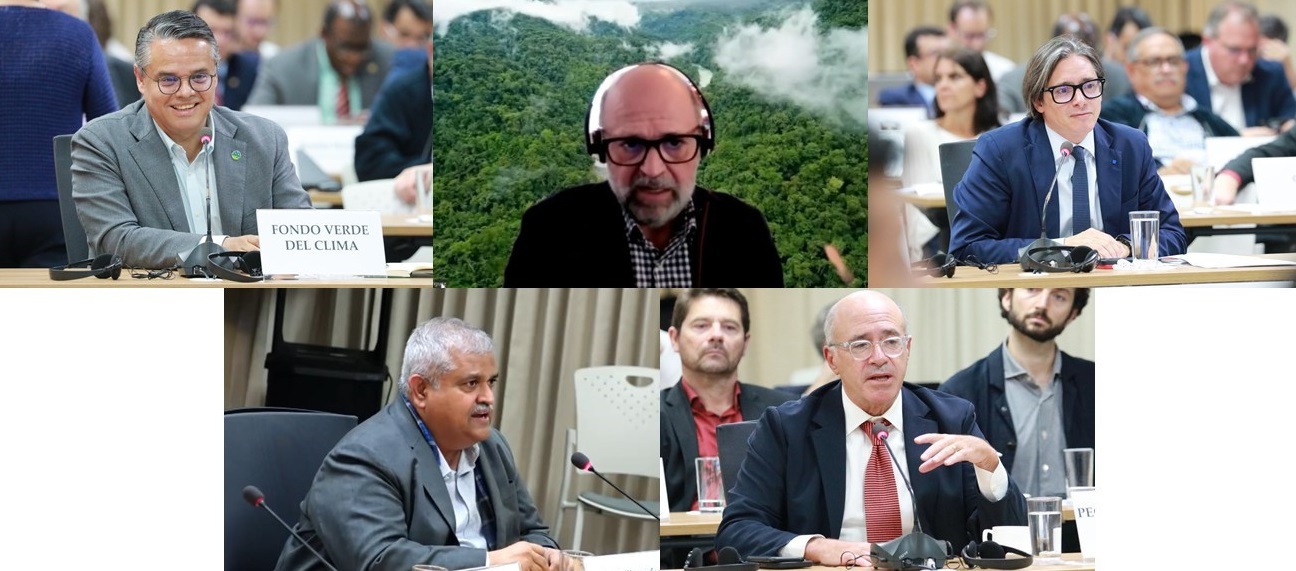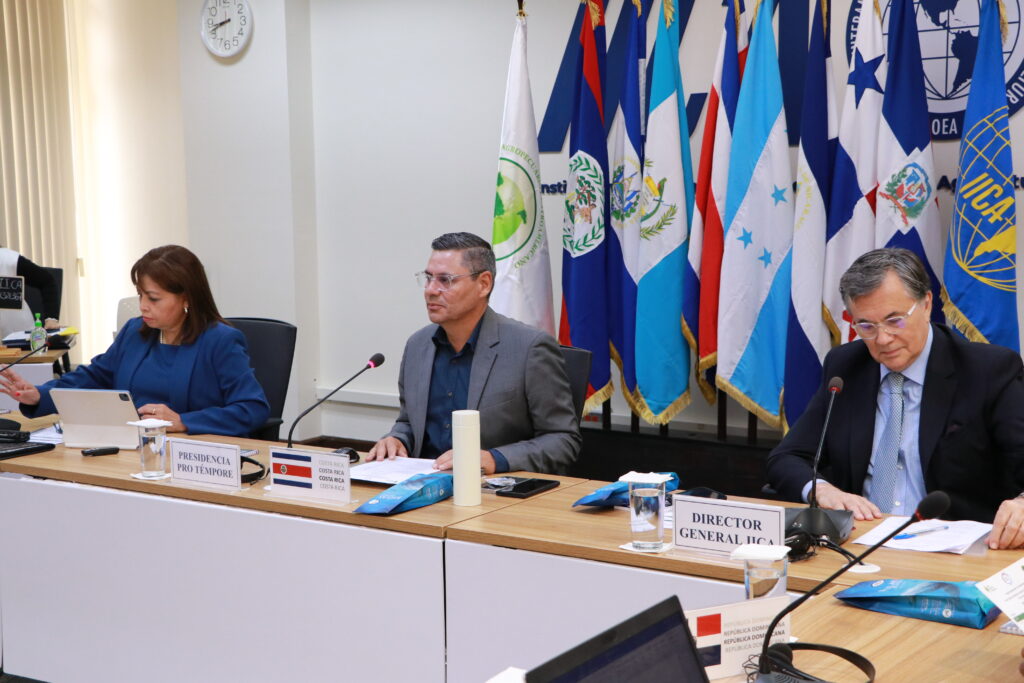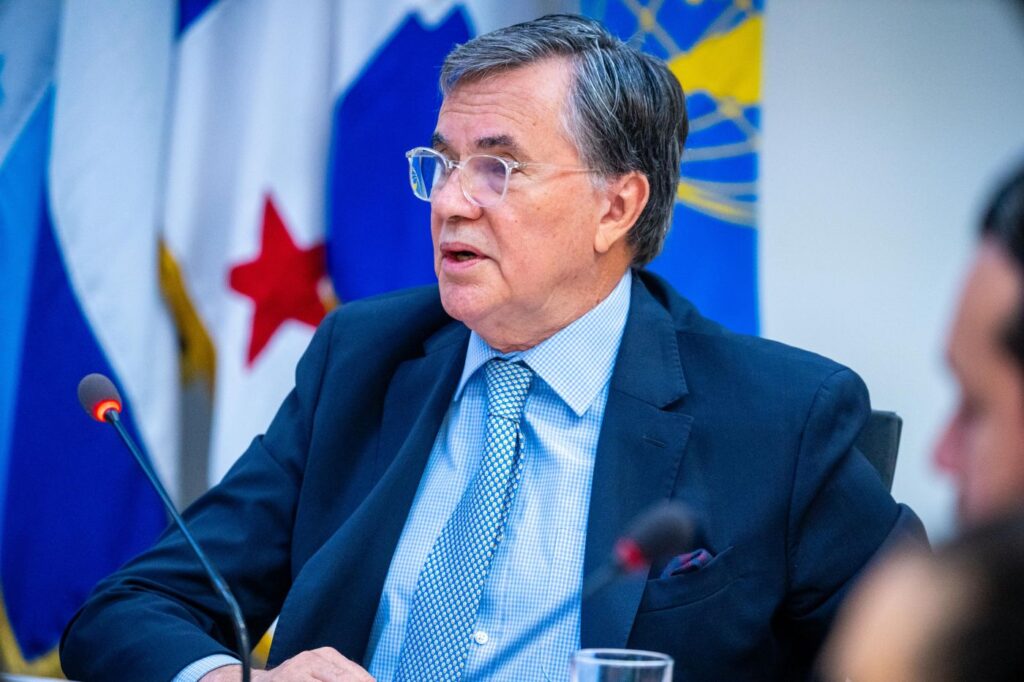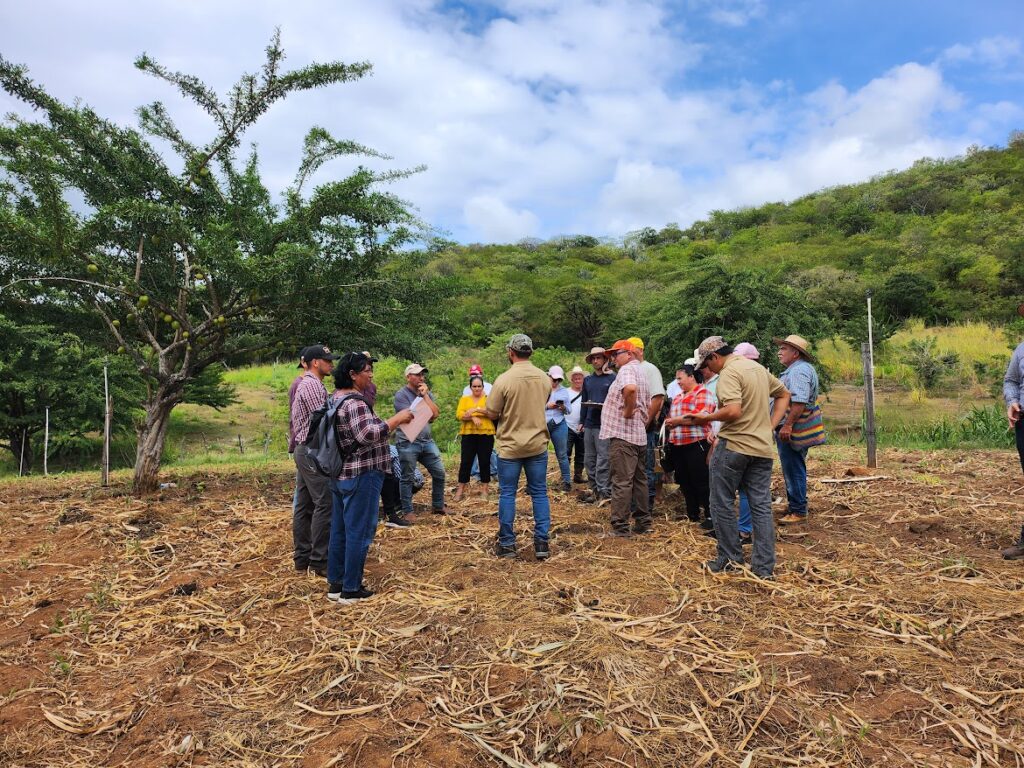El intercambio se produjo en una reunión organizada en San José de Costa Rica por el IICA, con el objetivo de acordar una posición convergente del sector agropecuario de la región para la próxima COP 27.

San José, 26 de septiembre de 2022 (IICA) – Ministros y altos funcionarios de Agricultura de más de 30 países de las Américas reunidos en Costa Rica escucharon a representantes de organismos multilaterales de crédito y de fondos globales de financiamiento, quienes detallaron las oportunidades que existen para el desarrollo de proyectos vinculados con mitigación y adaptación al cambio climático en el agro.
El intercambio se produjo en una reunión organizada en San José de Costa Rica por el Instituto Interamericano de Cooperación para la Agricultura (IICA), con el objetivo de acordar una posición convergente del sector agropecuario de la región para la próxima Conferencia de las Naciones Unidas sobre Cambio Climático (COP 27), que tendrá lugar en Egipto en noviembre.
Henry González, Director Ejecutivo Adjunto del Fondo Verde para el Clima (GCF, por sus siglas en inglés), dio detalles del funcionamiento del que es el mayor fondo multilateral de cambio climático en el mundo.
González explicó que el GCF fue establecido por la Convención Marco de las Naciones Unidas sobre Cambio Climático y fue reconocido como uno de los mecanismos de financiamiento del Acuerdo de París.
“Apoyamos a los países en desarrollo en su transición hacia economías bajas en emisiones de gases de efecto invernadero y resilientes al clima. Vamos donde el sector privado no puede ir y tenemos una visión de alto riesgo y largo plazo”, precisó González, quien contó también que “el IICA es una de nuestras entidades acreditadas más recientes para acceder a sus proyectos”.
González explicó que el GFC ya ha financiado proyectos por 10.800 millones de dólares, pero que ha logrado movilizar unos 30.000 millones de otras entidades, por lo que el portafolio total alcanza los 40.200 millones.
“El Fondo representa un 2% o un 3% del financiamiento total que existe en el mundo para el cambio climático. El 49% de nuestros proyectos se refiere a adaptación y el 51% a mitigación, por lo que estamos muy cerca de lograr el objetivo de alcanzar un equilibrio en ese sentido”, afirmó.
El funcionario dijo que están financiados 70 proyectos por 1.100 millones de dólares relacionados con agricultura en temas como agroecología, disminución del metano en los cultivos de arroz, ganadería resiliente a bajas emisiones de carbono, y reducción de la pérdida en desperdicios de alimentos.
Carlos Manuel Rodríguez, Director General y Presidente del Fondo Mundial para el Medio Ambiente (GEF, por sus siglas en inglés) celebró la convocatoria del IICA para discutir una posición del agro de las Américas para la COP 27. “El tema ambiental hoy es transversal y las convenciones ambientales no son propiedad exclusiva de los ministerios de Ambiente”, afirmó.
Rodríguez reveló que el GEF –nacido en la Cumbre de la Tierra de Río de Janeiro de 1992- ha canalizado 121.000 millones de dólares en los últimos 30 años en beneficio de 163 países en vías de desarrollo.
“El problema de cambio climático y el de pérdida de la biodiversidad son dos lados de la misma moneda, porque ambos son producto de un modelo de consumo irracional que aspira al crecimiento limitado, sin conocer los límites planetarios”, afirmó Rodríguez, quien fue tres veces ministro de Ambiente de Costa Rica.
“Aunque nuestro trabajo se ha concentrado mayormente con los ministerios de Ambiente, los fondos del GEF están disponibles para los ministerios de Agricultura”, afirmó Rodríguez.
“A veces me pregunto cuál es la diferencia entre los ministerios de Agricultura y de Ambiente. Yo creo que ya hemos superado esa dicotomía, porque hoy la producción y la conservación no compiten. Los ministerios de Agricultura trabajan con biodiversidad domesticada y los de Ambiente, con biodiversidad silvestre, ambos con los mismos actores económicos y sociales y con los mismos paisajes”, afirmó Rodríguez.
Christian Asinelli, Vicepresidente Corporativo de Programación Estratégica de CAF-Banco de Desarrollo de América Latina, reveló que esta institución financiera regional recientemente realizó por consenso de su asamblea de accionistas un aumento de capital por 7.000 millones, el más grande en su historia.
“Queremos ser el banco verde de América Latina. Esto significa que el 40% de nuestros proyectos tienen que destinarse a cuestiones vinculadas al cambio climático. Y ser el banco de la reactivación”, afirmó.
Asinelli dijo que, considerando que todos los países de la región se han comprometido a reducir sus emisiones de gases de efecto invernadero, la CAF tiene la iniciativa de crear un mercado latinoamericano de carbono, en el que el sector agroalimentario jugará un papel preponderante, ya que puede pasar de ser un emisor neto a capturador neto de los gases que generan el cambio climático.
La importancia del sector privado
“Hablamos mucho del ambiente y del clima, pero hacemos demasiado poco. Necesitamos despertarnos al desafío del cambio climático. Nadie va a venir a salvarnos; tenemos que salvarnos nosotros mismos con la imaginación y la innovación”, afirmó Satya Tripathi, Secretario General de la Alianza Global por un Planeta Sostenible.
Tripathi se refirió a la centralidad de que los países apelen al financiamiento privado para la acción climática.
“No se engañen. No hay 100.000 millones de dólares cada año para el cambio climático. El dinero no va a llegar”, dijo en referencia al monto comprometido por los países desarrollados en el Acuerdo de París.
En ese sentido, señaló: “Trabajando con el sector privado y desarrollando alianzas de respeto, podemos tener resultados sobresalientes”.
Craig Cogut, fundador y socio codirector de Pegasus Capital Advisors, manifestó su interés en financiar proyectos relacionados con la transformación de la agricultura de los Estados miembros del IICA.
“La agricultura es central porque no solo tiene que ver con la alimentación, sino también con la salud y la economía. El impacto ambiental está ahí y por eso queremos trabajar con ustedes”, afirmó.
Entre los proyectos vinculados con agricultura que Pegasus está financiando en las Américas, Cogut mencionó la producción orgánica del banano, la reducción de emisiones de gases de efecto invernadero de la ganadería y la fabricación de fertilizantes a base de algas.
Más información:
Gerencia de Comunicación Institucional
comunicacion.institucional@iica.int










